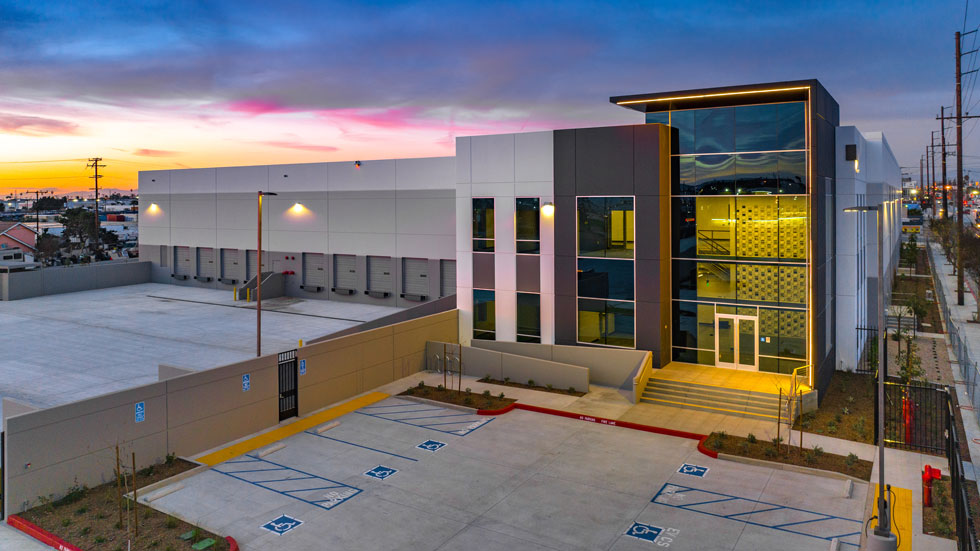This case study was published in the 2023 REIT Industry ESG Report, which details the REIT and publicly traded real estate industry's environmental, social, and governance (ESG) performance and features 20 case studies showcasing REIT leadership and ESG innovation from a variety of sectors. The report serves as a practical tool for shareholders and stakeholders to assess the scale and impact of the REIT industry's ESG commitments and initiatives. Applicable footnotes and/or citations for this case study are available in the full report.
Rexford Industrial Realty (Rexford) has long been committed to addressing the sustainability of its portfolio and recognizing its responsibility to manage climate-related risks. In 2022, the REIT conducted its inaugural Task Force on Climate-Related Financial Disclosures (TCFD) assessment to better understand climate risks to its portfolio.
Rexford has embedded climate action factors into its business model. Core strategies of its business include a focus on adaptive reuse of vintage buildings, integrating energy and water efficiency strategies into its projects, and strategically investing in first- and last-mile infill locations adjacent to the nation’s largest ports and within the nation’s largest regional population center. The company’s value-add approach to transforming outdated, inefficient buildings dramatically reduces carbon impact by avoiding manufacture and transport of new building materials, and by upgrading older, highly inefficient property to the highest green operating standards.
The company’s TCFD assessment builds on these core strategies to more formally evaluate short- and long-term climate-related risks and opportunities. Rexford’s Enterprise Risk Management platform was developed in 2022 to properly evaluate the risks to its business, to support the REIT’s risk mitigation efforts and manage departmental risks, including climate risk. Aligning its climate risk assessments allows Rexford to strategically plan and mitigate the effects of climate change on its portfolio, build greater climate resilience, identify new opportunities to generate value for tenants and stakeholders, and bolster its long-term capacity to create shareholder value.
Through extensive research and internal and external stakeholder engagement, Rexford evaluates potential outcomes and effects of multiple climate scenarios across the company’s portfolio. For instance, the assessment evaluates physical risks to the REIT’s infrastructure as well as potential reputational risks. After completing the TCFD process and identifying risks and opportunities, Rexford is focused on setting targets and tracking metrics that allow it to reduce its environmental impact, especially in its effort to maximize efforts to reduce greenhouse gas emissions.
One of the company’s greatest challenges related to its sustainability strategy has been data quality, such as issues with collecting, compiling, and analyzing high quality data across different properties. The company has seen improvements by employing new technologies and software systems and continues to advance its efforts. Moving forward, Rexford plans to continue engaging tenants to drive improvements that will support the company in meeting its environmental targets.
By advancing TCFD aligned climate risk assessments into existing business processes and sustainability strategy, Rexford is integrating sustainability into its core business processes and supporting efforts to deliver risk adjusted returns. Through an embedded risk management program, setting targets, and expanding efforts to collect asset data and track environmental impact metrics, the REIT is prepared to provide transparency to stakeholders and comply with future climate risk related regulation.
Rexford Industrial Realty, Inc. is a leading industrial real estate investment firm focused on creating value and positive environmental and societal impacts by investing in, operating, and redeveloping industrial properties throughout infill Southern California.
